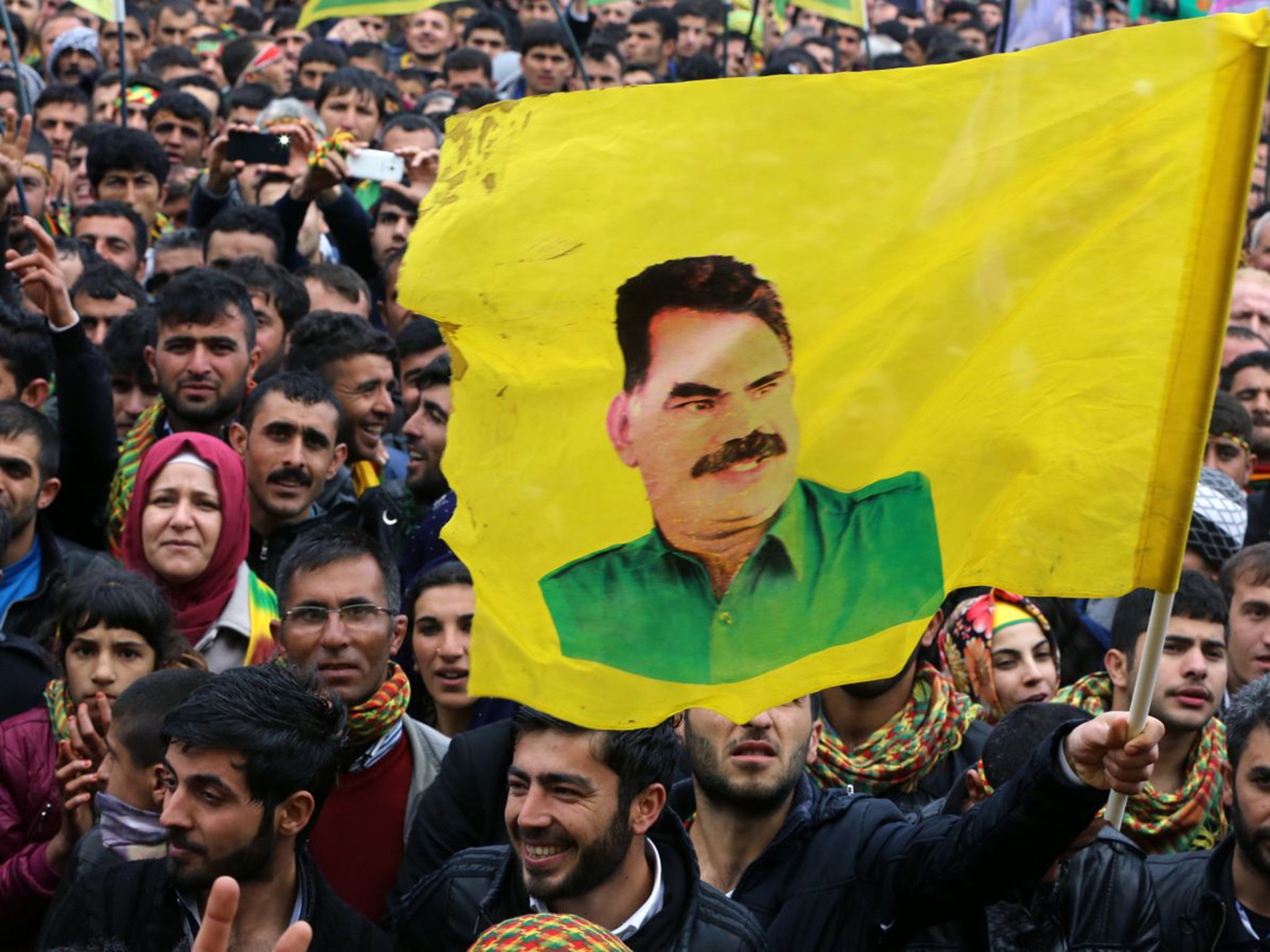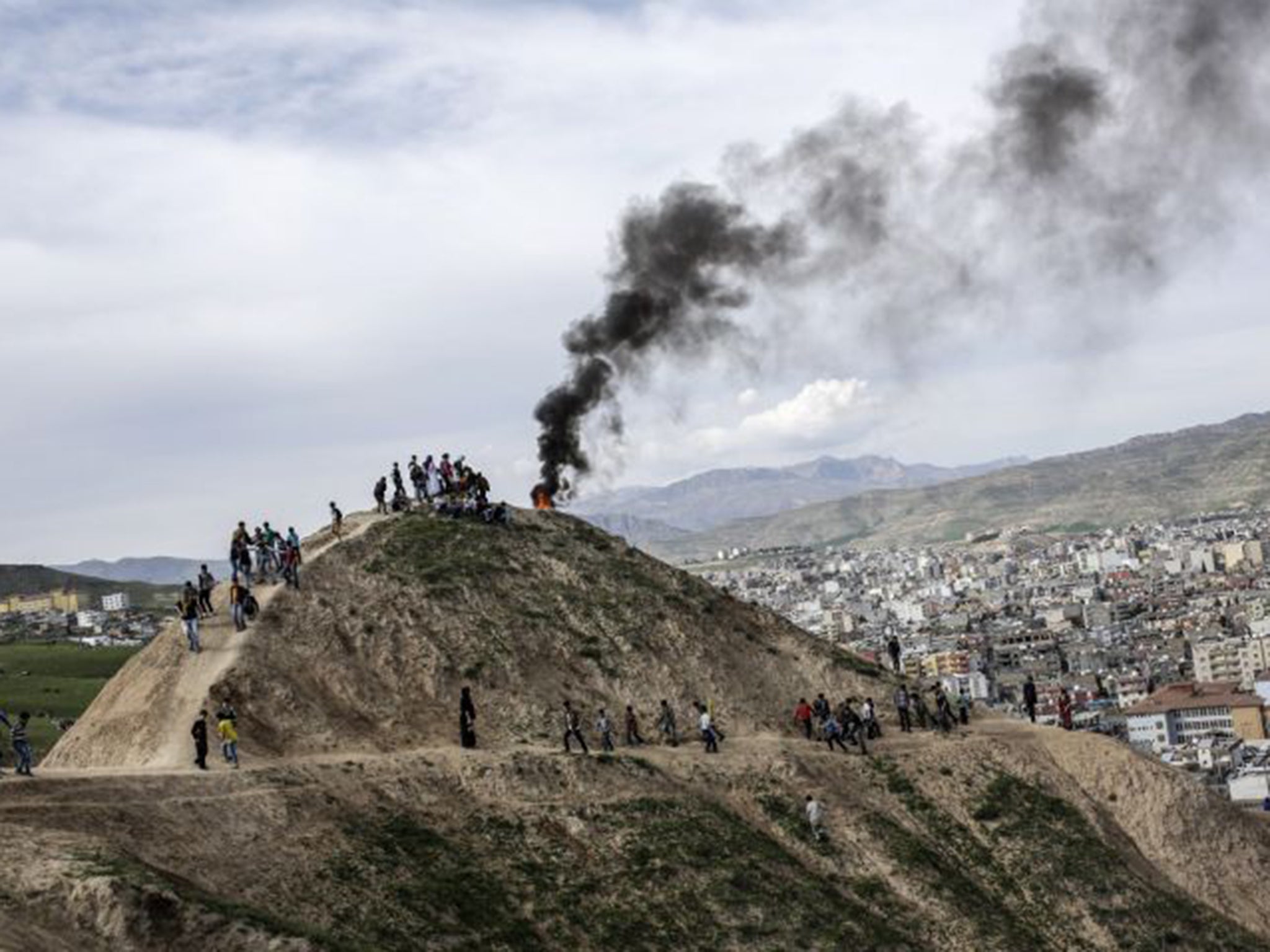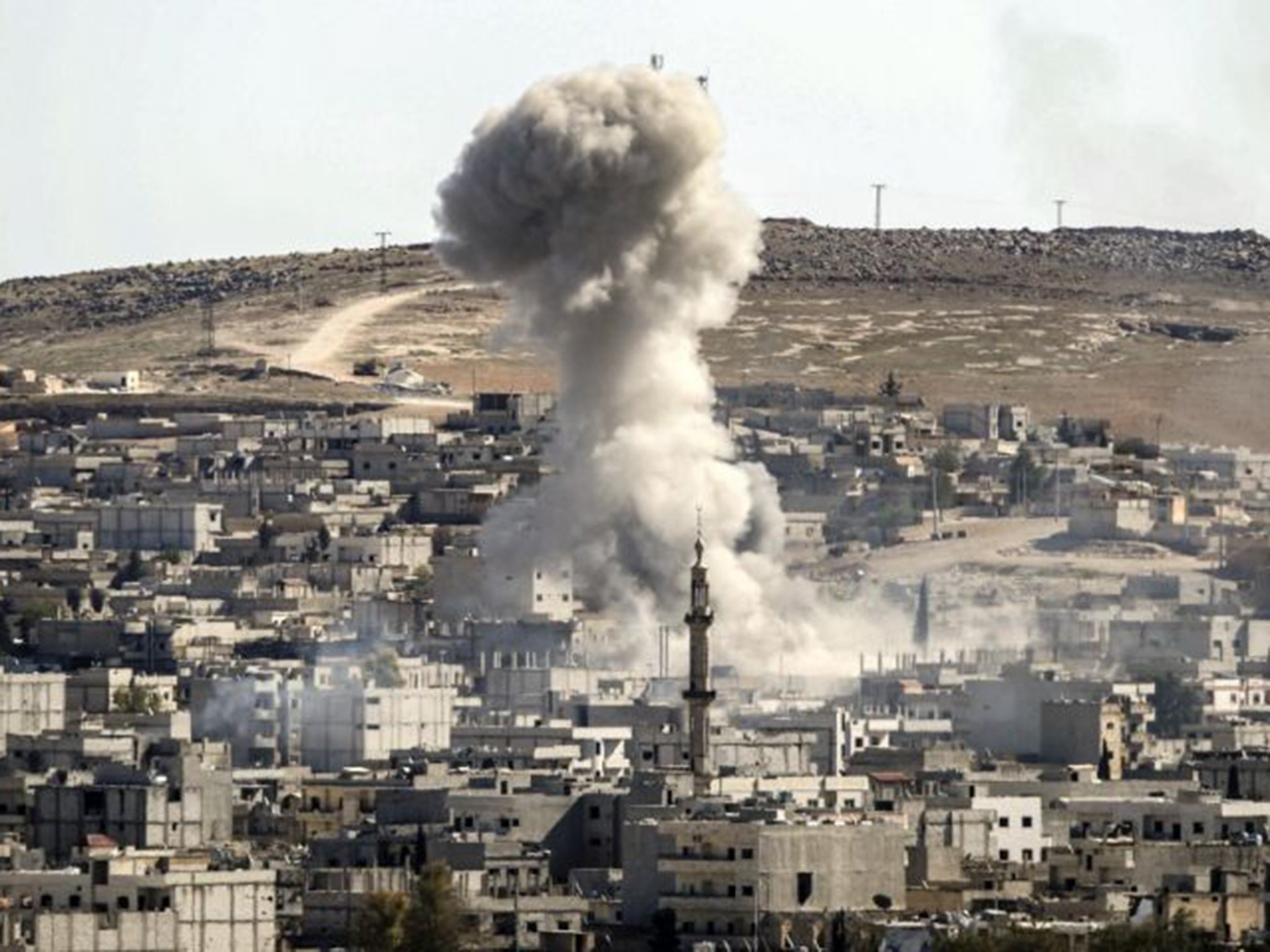Kurds commit to Turkish peace process as PKK leader announces definitive end to '40-year-long armed struggle' with the state
President Recep Tayyip Erdogan expresses hope that the announcement will mark a turning point for the peace process

Your support helps us to tell the story
From reproductive rights to climate change to Big Tech, The Independent is on the ground when the story is developing. Whether it's investigating the financials of Elon Musk's pro-Trump PAC or producing our latest documentary, 'The A Word', which shines a light on the American women fighting for reproductive rights, we know how important it is to parse out the facts from the messaging.
At such a critical moment in US history, we need reporters on the ground. Your donation allows us to keep sending journalists to speak to both sides of the story.
The Independent is trusted by Americans across the entire political spectrum. And unlike many other quality news outlets, we choose not to lock Americans out of our reporting and analysis with paywalls. We believe quality journalism should be available to everyone, paid for by those who can afford it.
Your support makes all the difference.Above the jubilant cheers of the hundreds of thousands of Kurds celebrating the festival of Newroz, Kurdish new year, the jailed leader of the Kurdistan Workers’ Party (PKK) Abudallah Ocalan yesterday called for a definitive end to the “40-year-long armed struggle” against the Turkish state.
As Mr Ocalan’s statement was read to the huge rally, the sun broke through the clouds and the thudding rain eased: even the weather seemed to recognise a momentous occasion. His emphasis on a democratic solution is seen as a pivotal step in a process that many officials from both sides believe is the single most important issue the country faces.
“I see it as historical and necessary to hold a congress to stop the armed struggle which has been carried on by the PKK against the Turkish Republic for nearly 40 years and to determine political and social strategies and tactics which are suitable for a new period,” he said in a two-page letter read out by deputies of the Kurdish People’s Democratic Party (HDP), first in Kurdish and then in Turkish.

Mr Ocalan called late last month for the PKK leadership to convene an “extraordinary congress in the coming spring months” to make the decision to definitively relinquish the armed fight.
“A new era is set to begin with this congress,” Mr Ocalan reiterated yesterday. “In this new era, within the Republic of Turkey, we’ll enter a phase where we will live in peace, as sisters and brothers, with a democratic identity and as a democratic society.”
Hundreds of Kurdish independence flags fluttered in the strong breeze, carried by young and old alike amid a sea of red, yellow and green – the Kurdish colours – in the muddy park in Diyarbakir, south-east Turkey.
Women, men and children were dressed in traditional olive green Kurdish baggy trousers and shirt associated with the PKK.
Kurdish new-year celebrations have become increasingly political in recent years. In 2013, Mr Ocalan’s first letter written from his cell – a 20-page manifesto – announced the beginning of the peace process.
Despite the ceasefire, tensions have been high and were brought to the fore last autumn as the northern Syrian town of Kobani came under assault by Islamic State (Isis). The sight of Turkish tanks motionless across the border brought protests at what some perceived as Turkey’s tacit support of Isis. Turkey’s alleged refusal to allow Turkish Kurdish fighters to cross the border to fight alongside Syrian brethren – something Ankara has denied – left dozens dead.
The triumph of Syrian YPG and Iraqi Kurdish peshmerga forces in clearing Isis fighters from Kobani, in coordination with the US-led coalition, has stoked the deep-seated desire for Kurdish independence from Turkey.
While the message delivered little of the eagerly awaited details of the congress framework, Mr Ocalan’s naming Isis as an organisation that “pushed the boundaries of the meaning of barbarism” will not be lost on the anti-Isis coalition.
The PKK have been strong fighters against the terror group, both in Sinjar and in Kobani. Should it make peace with Turkey and be removed from the designated terror list, it may become a far more palatable partner.

The priorities for most people, however, are peace and the release of their leader. “We all want peace of course, and we don’t want to use weapons any more. We won’t give up our demand for freedom but we want peace,” said Sehmus Celik, as he went about his business selling T-shirts imprinted with Mr Ocalan’s face at various ages.
“They like the younger picture,” he said. “He looks stronger in it.”
The 47-year-old travelled nearly 200 miles to sell his wares to the masses descending on the de facto Kurdish capital Diyarbakir for the largest celebration of Newroz.
Barely a toddler when Mr Ocalan was imprisoned, skinny 18-year-old Memet Direkci is keen to lay his hands on a shirt emblazoned with his hero.
“We like our leader so much. We’re here today for our nation and for our struggle,” he said, although he admits his father has stayed at home and is a firm supporter of the ruling AKP party.
While Turkish President Recep Tayyip Erdogan stoked criticism recently for dismissing the idea of the “Kurdish question”, he said he hoped yesterday’s announcement marked a turning point for the peace process.

“Let it be a cornerstone that truly combines love... not a Newroz like those of the past, when everywhere was burned and destroyed by Molotov cocktails, stones and fireworks,” he said.
The president lashed out at his own government on Friday, stating he did not approve of the formation of a monitoring committee as part of the Kurdish peace process, despite a deal already being reached with the HDP.
And in a rare attack on President Erdogan from within his own party, Deputy Prime Minister and government spokesman Bulent Arınc dismissed the president’s views as emotional and personal.
“His statements that ‘I didn’t like it’ or ‘I don’t approve this and that’ are his emotional remarks. The responsibility belongs to the government and we can regard his statements as his personal views,” said Mr Arınc .
In Cizre, a Kurdish town on the Turkey-Iraq border, the support for peace seemed similarly strong, despite the violence seen earlier this year with seven people – including a 12-year-old boy, allegedly shot by Turkish police in street clashes. Both the police and the government have denied any responsibility for the child’s death.
But the Kurds’ trust in Mr Ocalan seems unshakeable. “We don’t believe in the peace process but we believe in our leader,” said Filiz Olmez, a lawyer and human-rights activist investigating the shootings. “If he says we should stop, we will stop, and when he says go, we will go. We don’t believe in the Turkish state but Ocalan knows what he’s doing and we believe in him.”
Join our commenting forum
Join thought-provoking conversations, follow other Independent readers and see their replies
Comments